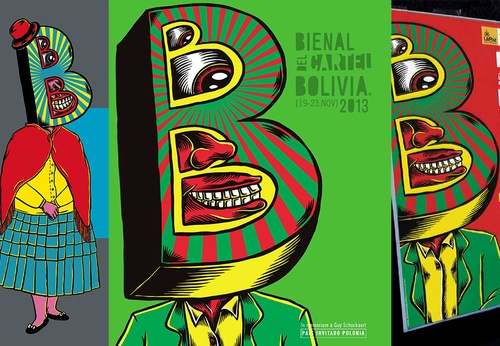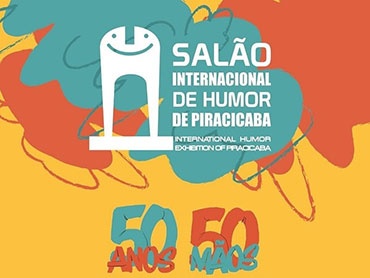
The Tooth – Patrice Lumumba and Congo’s Decolonization
The Belgian comic artists Pierre Lecrenier and Nicolas Pitz share their vision of the promising yet tragic journey of Patrice Lumumba, the great figure of Congolese independence, while highlighting Belgium’s ambiguous role in its colonial history.
Patrice Lumumba’s wife, Pauline, shares his struggles but holds no illusions about the white colonizers.
This remarkable graphic novel takes its name from a mysterious title for the uninitiated. It all began with a 1999 interview on German television, featuring Gérard Soete, a former police officer in Elisabethville (now Lubumbashi). After Katanga’s secession under Moïse Tshombé, Soete remained there and, before the cameras, displayed a bullet and two teeth he claimed to have taken from Lumumba’s body.
That same year, Belgian historian Ludo de Witte published The Murder of Patrice Lumumba, asserting that the assassination was carried out with — at the very least — the blessing of Belgian political authorities. The book caused a national scandal, leading to a parliamentary investigation in Belgium.
Using that shocking 1999 interview as both entry and conclusion, Pitz and Lecrenier’s comic avoids firm claims about the still-controversial assassination of Congo’s first Prime Minister on January 17, 1961, focusing instead on the roots of decolonization as developed by Lumumba himself — his political rise and his tragic fall, always accompanied by his devoted wife Pauline Opango.
Born in Onalua into the Tetela ethnic group, Lumumba was part of a tiny elite known as “Les Évolués”, treated with relative respect by Europeans. A self-educated intellectual, journalist, and gifted orator, he became a passionate advocate for social justice, Pan-Africanism, and African unity.
After years of struggle — from imprisonment to international recognition — Lumumba became the first Prime Minister of the newly independent Congo on June 30, 1960. His time in power was brief, undermined by internal tensions, Katanga’s secession, and the pressure of Belgium, France, and the United States.
From Stanleyville (Kisangani) to the forests of Katanga, from Brussels to his birthplace Onalua, the graphic novel retraces Lumumba’s extraordinary journey, portraying both the idealism and betrayal that shaped a nation’s first steps toward freedom.
The Tooth is ultimately an exploration of memory, justice, and humanity — a reminder that decolonization was not only a political process but also a profound human struggle for dignity and expression through the universal language of art.
Latamarte

- January 27, 2026
Aztecs in the Empire City: “The People Without History” in The Met


- January 27, 2026
The Evolution of Art: From Classical to Digital

- January 27, 2026
What are Visual Arts and Why Do They Matter Today?

- January 27, 2026
Selected Illustration Gallery of Venezuelan Artists

- January 27, 2026
Selected Caricature Gallery of Cuban Artists

- January 26, 2026
Bolivia Poster Biennial (BICeBé 2013)

- January 26, 2026
Selected Gallery of Paintings by Peruvian Artists

- January 26, 2026
Selected Gallery of Watercolor Paintings by Peruvian Artists

- January 27, 2026
The Evolution of Art: From Classical to…

- January 27, 2026
What are Visual Arts and Why Do They Ma…

- January 26, 2026
First artistic manifestations

- January 26, 2026
Art in the Street: Expression, Identity…

- January 25, 2026
text-to-image generator with ai

- January 25, 2026
The 'uncomfortable' muralist who portra…

- January 24, 2026
Artificial Intelligence as a Tool and C…

- January 24, 2026
Artificial Intelligence in Art

- January 21, 2026
Art of Artificial Intelligence and its …

- January 21, 2026
5 most striking features of modernism

- January 19, 2026
History of painting

- January 19, 2026
Conditions and characteristics of sacre…

- January 08, 2026
The art of caricature in Latin America

- January 07, 2026
Languages, Aesthetics, and Meaning of C…

- January 07, 2026
Street Art as a Form of Social and Cult…

- January 06, 2026
Symbolism and Spirituality in Latin Ame…

- January 06, 2026
Sacred Art in Latin America: Meeting be…

- January 05, 2026
The Importance of Art in Society

- January 04, 2026
Graphic Art: Much More Than an Image, a…

- January 04, 2026
The Future of NFTs and AI-Generated Art

- August 29, 2023
The history of Bolivian art

- February 19, 2024
Analysis and meaning of Van Gogh's Star…

- January 28, 2024
Culture and Art in Argentina

- September 25, 2023
What is the importance of art in human …

- September 23, 2023
What is paint?

- August 23, 2023
The 11 types of art and their meanings

- August 10, 2023
14 questions and answers about the art …

- September 23, 2023
Painting characteristics

- August 30, 2023
First artistic manifestations

- January 12, 2024
10 most beautiful statues and sculpture…

- September 23, 2023
History of painting

- March 26, 2024
The importance of technology in art1

- July 13, 2024
The impact of artificial intelligence o…

- March 26, 2024
Cultural identity and its impact on art…

- April 07, 2024
Graffiti in Latin American culture

- April 02, 2024
History visual arts in Brazil

- April 06, 2024
History of visual arts in Ecuador

- August 16, 2023
The 15 greatest painters in art history

- October 18, 2023
History of sculpture

- March 05, 2024
The art of sculpture in Latin America

- February 19, 2024
Analysis and meaning of Van Gogh's Star…

- August 13, 2023
9 Latino painters and their great contr…

- August 23, 2023
The 11 types of art and their meanings

- August 10, 2023
14 questions and answers about the art …

- August 27, 2023
15 main works of Van Gogh

- August 29, 2023
The history of Bolivian art

- January 28, 2024
Culture and Art in Argentina

- November 06, 2023
5 Latin American artists and their works

- September 23, 2023
Painting characteristics

- September 23, 2023
What is paint?

- September 25, 2023
What is the importance of art in human …

- March 26, 2024
Cultural identity and its impact on art…

- August 30, 2023
First artistic manifestations

- December 18, 2023
10 iconic works by Oscar Niemeyer, geni…

- January 20, 2024
What is the relationship between art an…

- January 12, 2024
10 most beautiful statues and sculpture…

- August 24, 2023
The most famous image of Ernesto "Che" …

- October 30, 2023
Characteristics of Contemporary Art

- May 26, 2024
Técnicas de artes visuais

- August 22, 2023


